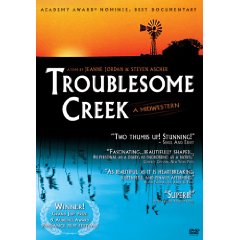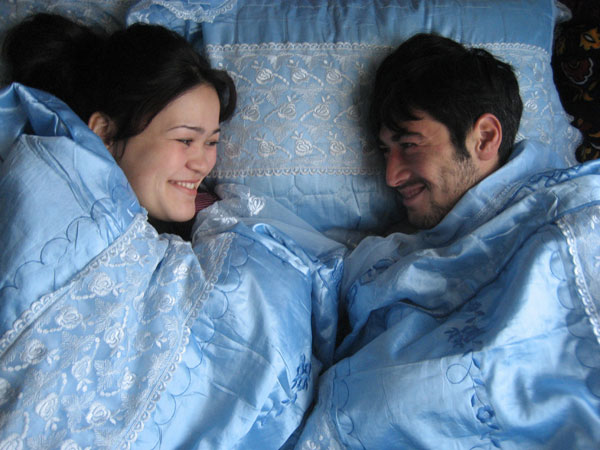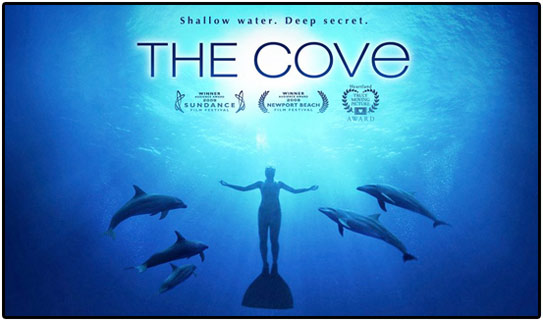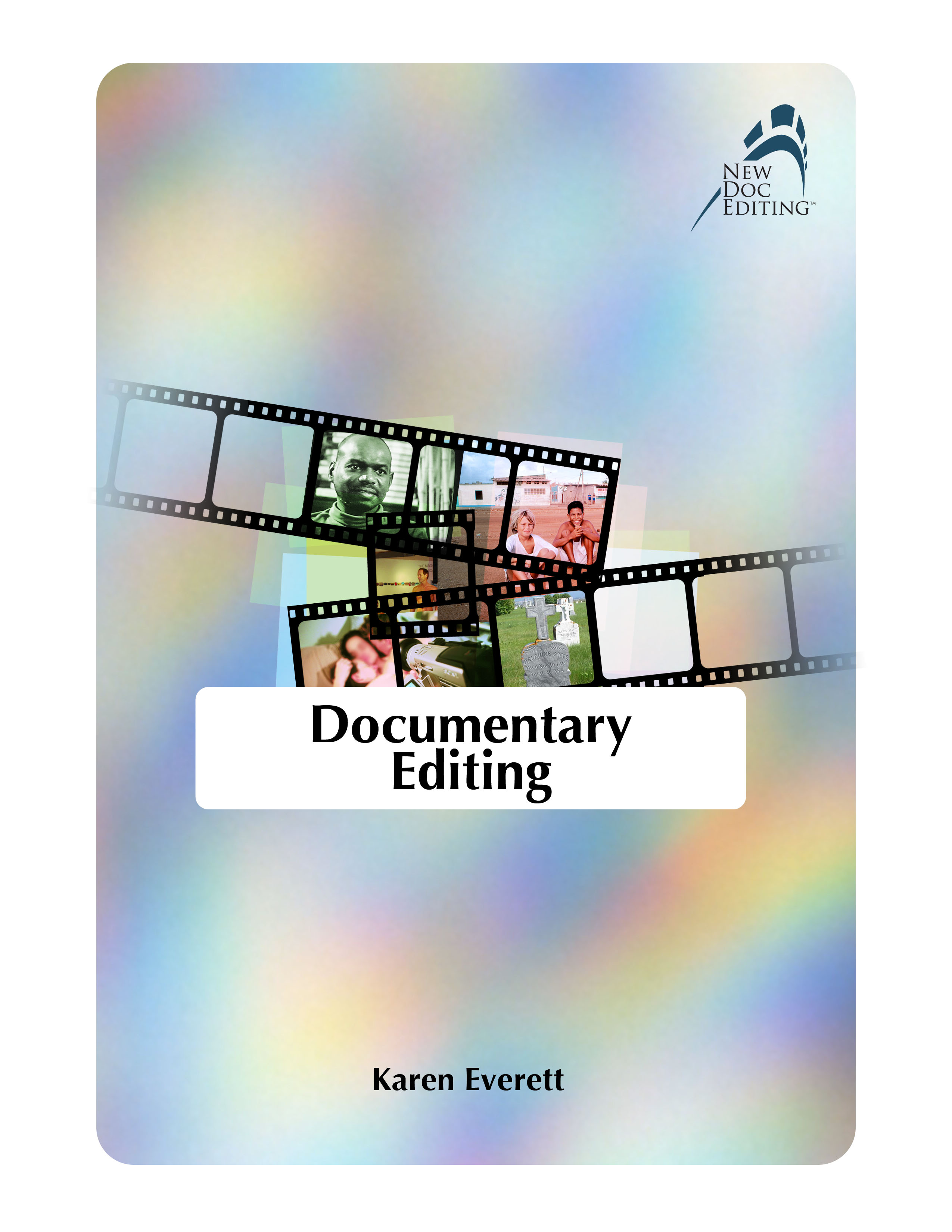Our Blog
Blog
Blog
Documentary Survey
April 20, 2010
Last Fall I sent out a one-question survey asking thousands of filmmakers, including the hundreds with whom I’ve corresponded in my work as a story consultant, what their number-one question was about how to structure their documentary film. The results from our community of independent filmmakers were fascinating-and confirmed a project that I’ve been working on for months to assist filmmakers in structuring their films. I’m now putting the finishing touches on it, and I’d like your help. While the project is still under wraps, I can tell you that this three-month guide to documentary storytelling can easily shave eight…
Read More...Editing an “Inciting Sequence” For Your Documentary
April 16, 2010
We are currently editing a personal documentary about a man, let’s call him John, who finds out the secret behind his adoption. John discovered the secret at age 18, and this discovery would seem to be the film’s obvious inciting incident, right? However, since our protagonist did not really take action on this stunning revelation until his mid-30’s, this documentary requires a different approach to the inciting incident. Our challenge has been to locate the event or decision that launches John’s investigation into the events surrounding his adoption at birth. Like many quests in real life, there was no sole…
Read More...
Secret Memo Reveals Editing Lore
April 15, 2010
An extraordinary memo from the executive producer of a CBS drama recently surfaced on the web. David Mamet, head of the now canceled show “The Unit” pens an extremely insightful memo to his writing staff. You can find it at: http://www.movieline.com/2010/03/david-mamets-memo-to-the-writers-of-the-unit.php. Referring to the business staff as “blue suited penguins,” Mamet underscores the essential keys to writing an engaging drama. Among other essentials, he says that every scene must address these three questions: Who wants what? What happens if she doesn’t get it? Why now? As a documentary filmmaker, you may think you know how to compose a three-act structure.…
Read More...Roy G. Dean Fund Ripe For Visionary Filmmakers
April 13, 2010
One of my heroes in the documentary film community is Carole Dean. You may have heard of her through her grant program, the Roy W. Dean Fund, which offers grants to films that might not otherwise get made. I urge you to apply for her upcoming grant cycles (more info below) because you will not only invite funding your documentary with a hefty grant, but you are guaranteed a valuable free consultation with Carol just for applying. If you are applying, let me give you a big tip. Carole funds filmmakers who project a passion and sense of certainty that…
Read More...Six Ways to Open Your Documentary Film
April 8, 2010
Editing an opening to your documentary film can easily be the most difficult scene to craft. The opening scene must immediately hook the viewer and then quickly lead to some sense of what the film is about. How do you do this? I recently came across a great newsletter from a San Francisco-based business, DV Workshops. They suggest six killer ways to open your documentary film in a way that will grip viewers straight out of the gate. Check it out at http://www.dvworkshops.com/newsletters/Sixways1.html You can also learn more about how to craft a great documentary open at https://newdocediting.com/land/editingdocumentaryecourse/.
Read More...“Container” Approach Is Emerging Trend in Documentary Filmmaking
April 6, 2010
I was fascinated by recent article in The Independent about the making of a documentary that recently premiered at Silverdocs, Long Distance Love. Directed by two Swedish filmmakers, the film is about a young Muslim couple and their quest to find work in Moscow. What’s interesting about this film is the directors’ approach to creating situations in which the subjects talk openly about what they’re going through. Although the film contains many vérité moments, it gets its emotional juice from the directors controlled staging of critical conversations. “As the filmmakers maintained more control, creating very specific circumstances for the subjects…
Read More...
PBS on Facebook
March 31, 2010
PBS is now using Facebook. With a core audience of 50 and 60-year-olds, PBS is finally joining the social media trend by promoting its broadcast of a new documentary on American Experience, “Earth Days”. And … if PBS can do it, so can I! I’m committed to actually using Facebook this year to further the mission of New Doc Editing…to help documentary filmmakers structure inspiring, engaging films that will keep their viewers glued to the screen. And I’m also going to get my Twitter account up and running (thanks to Michael Behrens and Tiffany Shlain for the encouragement). You can…
Read More...Why “The Cove” Won the Oscar For Best Documentary Feature
March 26, 2010
My girlfriend Erin and I recently attended an annual Academy Awards party with friends who dress up like Hollywood stars. My sweetie said my nylons looked like high school tights, and later a new acquaintance told me that black was not a good color for me. But later I enjoyed a moment of pride when my prediction that The Cove would win Best Documentary Feature came true. While much has been written on Doculink about the controversy surrounding the winner of the Short Documentary competition, what impressed me about the Oscar for Best Documentary Feature was the director’s acceptance in…
Read More...
“Documentary Editing” Gets Better
March 24, 2010
Earlier this month, I had the privilege of presenting with one of our community’s most inventive thinkers, ITVS Senior Programming Manager Richard Saiz, on how to generate innovative approaches to your documentary storytelling. After the event, which was the biggest Film Arts Forum ever hosted by the San Francisco Film Society, I wanted to give filmmakers a practical tool, something you could use to generate creative approaches to your storytelling. The result? The “Innovation Worksheet”, which is just one of the many improvements in the second edition of my eBook Documentary Editing. The 2nd edition of Documentary Editing, which is…
Read More...
The Empathetic Storyteller, Part Two
March 18, 2010
As a story consultant who has advised on hundreds of documentary films, one of the biggest problems I see and help solve is what I call the “Save the Day My Way Syndrome”. This insidious tendency is shared by many well-meaning documentary filmmakers who, in creating socially conscious films aimed at changing the status quo, structure an essay solely from one-sided arguments. My job? To help them get off their rant with a proven storytelling strategy. Ready? Back in the day, journalistically-sound PBS style documentaries frequently relied on a “voice of God” narrator to referee between multiple viewpoints, creating a…
Read More...